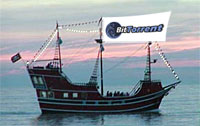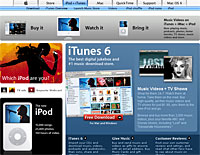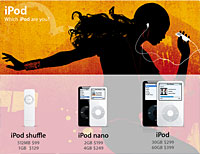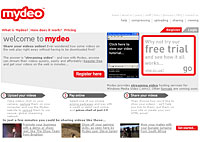 The digital rights campaigning group, Open Rights Group, reports that the music industry is lobbying MEPs to co-opt the EU Data Retention legislation currently being debated by the European Parliament.
The digital rights campaigning group, Open Rights Group, reports that the music industry is lobbying MEPs to co-opt the EU Data Retention legislation currently being debated by the European Parliament.
Music industry body, the Creative and Media Business Alliance (CMBA), wants data-snooping legislation aimed at the prevention of terrorism to be made available for the prosecution of any crime, such as copyright infringement.
The move has been condemned by the Open Rights Group and other civil liberties groups across Europe, with campaigners calling on the Alliance’s members – which include industry bigwigs like Sony BMG, Warner Music, Disney, and EMI – to retract their demands.
The Data Retention draft framework was originally cooked up by Sweden, Ireland, France and the UK, aiming at “the prevention, investigation, detection and prosecution of serious criminal offences such as terrorism and organised crime” by forcing telecommunications and Internet service providers to retain ‘traffic data’ (i.e. information about your phone calls and Internet activities.)
Keen to exploit the legislation for their own commercial gain, the CMBA has demanded that this data should be made available for the prosecution of any crime – e.g. illegal music file sharing – and not just serious organised crime and terrorism.
 Coupled with the upcoming IPRED2 legislation (which creates new, Europe-wide criminal offences for intellectual property infringement), campaigners fear that we could end up with a situation where the music industry would be able to pursue criminal court copyright prosecutions entirely at the cost of the taxpayer.
Coupled with the upcoming IPRED2 legislation (which creates new, Europe-wide criminal offences for intellectual property infringement), campaigners fear that we could end up with a situation where the music industry would be able to pursue criminal court copyright prosecutions entirely at the cost of the taxpayer.
Worryingly, the Open Rights Group reports that the both the Data Retention and IPRED2 directives are being “fast-tracked” through the EU by short-circuiting normal legislative processes.
This means that there will only be one reading in the European Parliament, instead of the normal two, with sources from within the Parliamentary system indicating that some MEPs aren’t aware that the usual democratic process is being bypassed.
A tight timetable means that MEPs are only going to have a couple of days to assess the Data Retention proposal with the final vote occurring on the 13 December.
“The passing of the Data Retention directive would be a disaster not just for civil liberties and human rights in Europe”, said Open Rights Group director Suw Charman, “it would also put a substantial financial burden on telcos and ISPs which would be passed on to the consumer either in the form of raised bills or through government subsidies funded by the taxpayer.”
 Ian Brown, of the Open Rights Group (not the Stone Roses), said: “The British government claimed that Data Retention was essential in the fight against terrorism and serious crime, but it has now become clear that groups with commercial interests have their eye on the same data. Charles Clarke cannot continue to pretend that this legislation has been drafted purely for reasons of national security.”
Ian Brown, of the Open Rights Group (not the Stone Roses), said: “The British government claimed that Data Retention was essential in the fight against terrorism and serious crime, but it has now become clear that groups with commercial interests have their eye on the same data. Charles Clarke cannot continue to pretend that this legislation has been drafted purely for reasons of national security.”
Gus Hosein, Senior Fellow at Privacy International, was equally unimpressed: “The EU has been claiming that data retention was some urgent policy response to terrorist attacks. But they are carefully drafting this legislation to ensure that it can be used for all purposes under the sun.”
“Ironically, the EU seems to be going at it alone: even the U.S. Bush Administration is not proposing such a ludicrous policy, despite the strong lobbying by Hollywood.” he added.
There are fears that if the CMBA is successful, the increased number of demands for access could affect the usefulness of the legislation as an anti- terrorism tool.
The Open Rights Group argue that if British record labels set up prosecution ‘production lines’ like their American counterparts, the system could collapse under the strain, clogging up reasonable and legitimate enquiries into genuine terrorist or serious crime activity.
Today, Sjoera Nas, Board Member of EDRi and Co-Director of Bits of Freedom presented a 58,000 signatures petition to the Chairman of the Committee, Green Party MEPs, Christian Democrats and the Social Democrats.
Nas commented, “Last minute negotiations with representatives of the European Council have lead to what we feared the worst – a draconian directive that flies in the face of our recommendations.”
“We can only hope that the European Parliament will come to its senses and realise that they cannot turn Europe into a surveillance society overnight without throwing away all human rights,” she added.
Open Rights Group
 LG Electronics’ PR department clearly don’t believe in a day of rest because Sunday saw them busily announcing the impending release of their LG PM 80, a PDA capable of receiving T-DMB (terrestrial digital multimedia broadcasting).
LG Electronics’ PR department clearly don’t believe in a day of rest because Sunday saw them busily announcing the impending release of their LG PM 80, a PDA capable of receiving T-DMB (terrestrial digital multimedia broadcasting). The actual device, presented here in the traditional manner by near-ecstatic Korean ladies (if only we got so much unbridled joy from our gadgets) follows the traditional PDA form factor, with the addition of an old-school pull out aerial for TV reception.
The actual device, presented here in the traditional manner by near-ecstatic Korean ladies (if only we got so much unbridled joy from our gadgets) follows the traditional PDA form factor, with the addition of an old-school pull out aerial for TV reception. As ever, the Koreans will get to play with this device for ages before we even get a peek at it – if they don’t decide to keep it to themselves for ever, of course.
As ever, the Koreans will get to play with this device for ages before we even get a peek at it – if they don’t decide to keep it to themselves for ever, of course.  For techie-obsessives like the Digital Lifestyles crew, keeping connected when we’re away from home is right up there with finding a roof over our heads, so when we went off to New York, we made sure we packed our Sony laptop and Wi-Fi enabled smartphone – even on holiday.
For techie-obsessives like the Digital Lifestyles crew, keeping connected when we’re away from home is right up there with finding a roof over our heads, so when we went off to New York, we made sure we packed our Sony laptop and Wi-Fi enabled smartphone – even on holiday. One rather unfortunate side-effect of all this free connectivity was that once-bustling cafes turned into conversation-free libraries, with rows of transfixed surfers staring intently into their screens, with the silence only broken by intermittent bursts of keyboard activity.
One rather unfortunate side-effect of all this free connectivity was that once-bustling cafes turned into conversation-free libraries, with rows of transfixed surfers staring intently into their screens, with the silence only broken by intermittent bursts of keyboard activity. On the street, one handset seemed to be stuck in almost every New Yorker’s hand: the Palm Treo 750. They love the phone!
On the street, one handset seemed to be stuck in almost every New Yorker’s hand: the Palm Treo 750. They love the phone! The digital rights campaigning group, Open Rights Group, reports that the music industry is lobbying MEPs to co-opt the EU Data Retention legislation currently being debated by the European Parliament.
The digital rights campaigning group, Open Rights Group, reports that the music industry is lobbying MEPs to co-opt the EU Data Retention legislation currently being debated by the European Parliament.  Coupled with the upcoming IPRED2 legislation (which creates new, Europe-wide criminal offences for intellectual property infringement), campaigners fear that we could end up with a situation where the music industry would be able to pursue criminal court copyright prosecutions entirely at the cost of the taxpayer.
Coupled with the upcoming IPRED2 legislation (which creates new, Europe-wide criminal offences for intellectual property infringement), campaigners fear that we could end up with a situation where the music industry would be able to pursue criminal court copyright prosecutions entirely at the cost of the taxpayer.  Ian Brown, of the Open Rights Group (not the Stone Roses), said: “The British government claimed that Data Retention was essential in the fight against terrorism and serious crime, but it has now become clear that groups with commercial interests have their eye on the same data. Charles Clarke cannot continue to pretend that this legislation has been drafted purely for reasons of national security.”
Ian Brown, of the Open Rights Group (not the Stone Roses), said: “The British government claimed that Data Retention was essential in the fight against terrorism and serious crime, but it has now become clear that groups with commercial interests have their eye on the same data. Charles Clarke cannot continue to pretend that this legislation has been drafted purely for reasons of national security.”  The Next Revolution Is Here… Or Is It?
The Next Revolution Is Here… Or Is It? P2P network, BitTorrent has signed an agreement with the Motion Picture Association of America to collaborate on stopping Internet piracy.
P2P network, BitTorrent has signed an agreement with the Motion Picture Association of America to collaborate on stopping Internet piracy. “BitTorrent Inc. discourages the use of its technology for distributing films without a license to do so. As such, we are pleased to work with the film industry to remove unauthorised content from BitTorrent.com’s search engine,” he added.
“BitTorrent Inc. discourages the use of its technology for distributing films without a license to do so. As such, we are pleased to work with the film industry to remove unauthorised content from BitTorrent.com’s search engine,” he added. The MPAA claims that the film industry lost $3.5 billion to movie piracy last year, with a recent study predicting the figure to jump to $5.4 billion this year. The MPAA claim these losses are excluding revenue lost through online file-swapping, so the true figure could be even higher (although other will say the figures are already gloriously exaggerated).
The MPAA claims that the film industry lost $3.5 billion to movie piracy last year, with a recent study predicting the figure to jump to $5.4 billion this year. The MPAA claim these losses are excluding revenue lost through online file-swapping, so the true figure could be even higher (although other will say the figures are already gloriously exaggerated). Apple’s iTunes online store has been ranked the seventh-largest music retailer in the US in the third quarter, charging into the top 10 for the first time.
Apple’s iTunes online store has been ranked the seventh-largest music retailer in the US in the third quarter, charging into the top 10 for the first time. Already eating iTunes’ dust are big names like Tower Records and Borders, reflecting music fans’ growing passion for online music.
Already eating iTunes’ dust are big names like Tower Records and Borders, reflecting music fans’ growing passion for online music. Combined revenue from the iPod, Apple’s fastest- selling product, and iTunes music accounted for a massive 40 percent of sales last quarter, up from 27 percent a year earlier.
Combined revenue from the iPod, Apple’s fastest- selling product, and iTunes music accounted for a massive 40 percent of sales last quarter, up from 27 percent a year earlier. Mydeo, the UK consumer video streaming company, has teamed up with UK ISP Tiscali to offer streaming video sharing services to broadband users of the UK Tiscali Website.
Mydeo, the UK consumer video streaming company, has teamed up with UK ISP Tiscali to offer streaming video sharing services to broadband users of the UK Tiscali Website. Members will be able to stream their cinematic masterpieces on a pay-as-you-go basis, and will only have to shell out when they choose to upload a video. Users can pay in Euros, UK Pounds or US Dollars.
Members will be able to stream their cinematic masterpieces on a pay-as-you-go basis, and will only have to shell out when they choose to upload a video. Users can pay in Euros, UK Pounds or US Dollars. “Mydeo is really easy to use and offers lots of help and support for our members who may be putting video on the Web for the first time,” Hole insisted.
“Mydeo is really easy to use and offers lots of help and support for our members who may be putting video on the Web for the first time,” Hole insisted. Market analyst Gartner reports that mobile phone sales have soared 22 percent compared to the same period last year.
Market analyst Gartner reports that mobile phone sales have soared 22 percent compared to the same period last year. In the Latin American segment, sales were up 46 per cent compared to last year, totalling 26.1 million phones units, while in Western Europe, big sales of 40 million phones were driven by customers upgrading their handsets.
In the Latin American segment, sales were up 46 per cent compared to last year, totalling 26.1 million phones units, while in Western Europe, big sales of 40 million phones were driven by customers upgrading their handsets.  For a long time, Cisco was only focused on high-end corporate sales. This started to change with its acquisition spree. Back In June 2003 it acquired Linksysin order to attack the home and small business markets.
For a long time, Cisco was only focused on high-end corporate sales. This started to change with its acquisition spree. Back In June 2003 it acquired Linksysin order to attack the home and small business markets.  DSL is much cheaper to install as it uses existing phone cabling, ratherthan CATV which requires digging up the road, installing fibre tothe street and co-axial cable to the home (this may not be true forgreenfield sites, but in countries with existing infrastructure likethe UK it is).
DSL is much cheaper to install as it uses existing phone cabling, ratherthan CATV which requires digging up the road, installing fibre tothe street and co-axial cable to the home (this may not be true forgreenfield sites, but in countries with existing infrastructure likethe UK it is). Though Cisco have bought Scientific Atlanta, who manufacture the consumerpiece of the puzzle, by expanding the consumer take-up of IPTV they arealso expanding the core network business. Don’t forget, running IPTV servicesrequires a lot of investment in network infrastructure i.e. moreCisco kit.
Though Cisco have bought Scientific Atlanta, who manufacture the consumerpiece of the puzzle, by expanding the consumer take-up of IPTV they arealso expanding the core network business. Don’t forget, running IPTV servicesrequires a lot of investment in network infrastructure i.e. moreCisco kit.